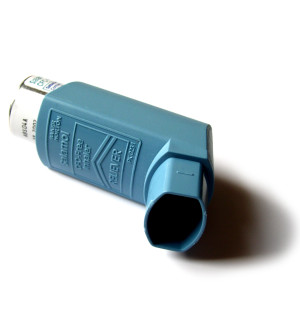- Could Your Grocery Store Meat Be Causing Recurring UTIs?
- Are You Making This Expensive Thermostat Error This Winter?
- Recognizing the Signs of Hypothyroidism
- 10 Strategies to Overcome Insomnia
- Could Artificial Sweeteners Be Aging the Brain Faster?
- Techniques for Soothing Your Nervous System
- Does the Water in Your House Smell Funny? Here’s Why
- Can a Daily Dose of Apple Cider Vinegar Actually Aid Weight Loss?
- 6 Health Beverages That Can Actually Spike Your Blood Sugar
- Treatment Options for Social Anxiety Disorder
Adult-Onset Asthma Might Raise Heart Risks

People who develop asthma when they’re adults may have another health issue to worry about: an increased risk for heart disease and stroke.
That’s the finding from research involving almost 1,300 adults, average age 47, none of whom had heart disease at the beginning of the study.
Of the participants, 111 had been diagnosed with asthma as adults — also known as “late-onset” asthma. Fifty-five more people had been diagnosed with asthma as children. The health of all the participants was tracked for 14 years.
Researchers led by Dr. Matthew Tattersall published their findings Aug. 24 in the Journal of the American Heart Association.
They found that people with late-onset asthma were 57 percent more likely than those with early-onset asthma and those without asthma to suffer heart attack, stroke, heart failure, angina and heart-related death.
Based on the findings, “doctors should be monitoring for high blood pressure and cholesterol closely in these patients and be aggressive in modifying any risk factors,” Tattersall said in a journal news release. He is assistant professor of medicine at the University of Wisconsin, in Milwaukee.
Tattersall believes asthma can vary greatly between people.
“Though it’s usually not recognized as such, there are several different types of asthma, each with some unique features,” he explained. “We looked at the type known as late-onset asthma, which tends to be more severe and more difficult to control with medicines than asthma that begins in childhood.”
In addition to being harder to control, late-onset asthma is often caused by different factors — such as air pollution — and often results in a more rapid decline in lung function, Tattersall said.
Two experts in respiratory care agreed that asthma and heart disease may often be interconnected, although any cause-and-effect relationship is uncertain.
“As this was an observational study, it does not imply that one condition caused the other,” stressed Dr. Alan Mensch, chief of pulmonary medicine at Northwell Health’s Plainview Hospital, in Plainview, N.Y.
“Instead, it suggests a common pathway for both conditions,” he said. “Further investigations into the cause of this association may have future treatment implications.”
Dr. Len Horovitz is a pulmonary specialist at Lenox Hill Hospital in New York City. He believes shared risk factors may connect the health of the lungs and the heart.
“One explanation offered was air pollution, with its tie to coronary atherosclerosis [hardening of the arteries] in women — there have been previous studies showing this,” he said.
In the meantime, adults with late-onset asthma can help themselves by exercising, eating a healthy diet and maintaining a normal body weight, Tattersall advised.
More information
The U.S. Centers for Disease Control and Prevention has more on asthma.
Source: HealthDay
Copyright © 2026 HealthDay. All rights reserved.










